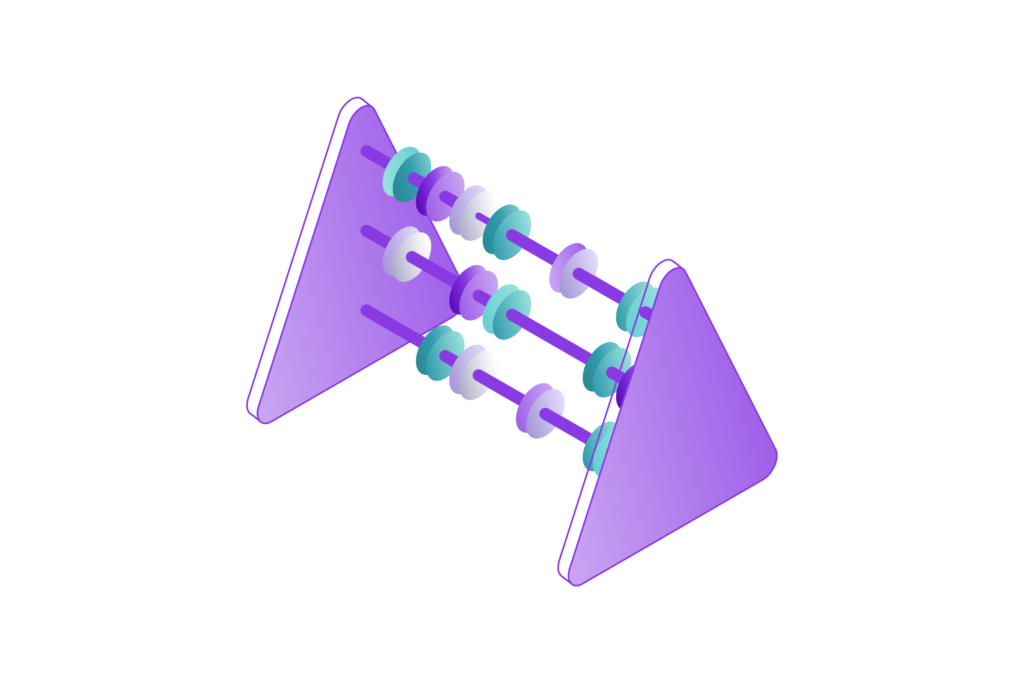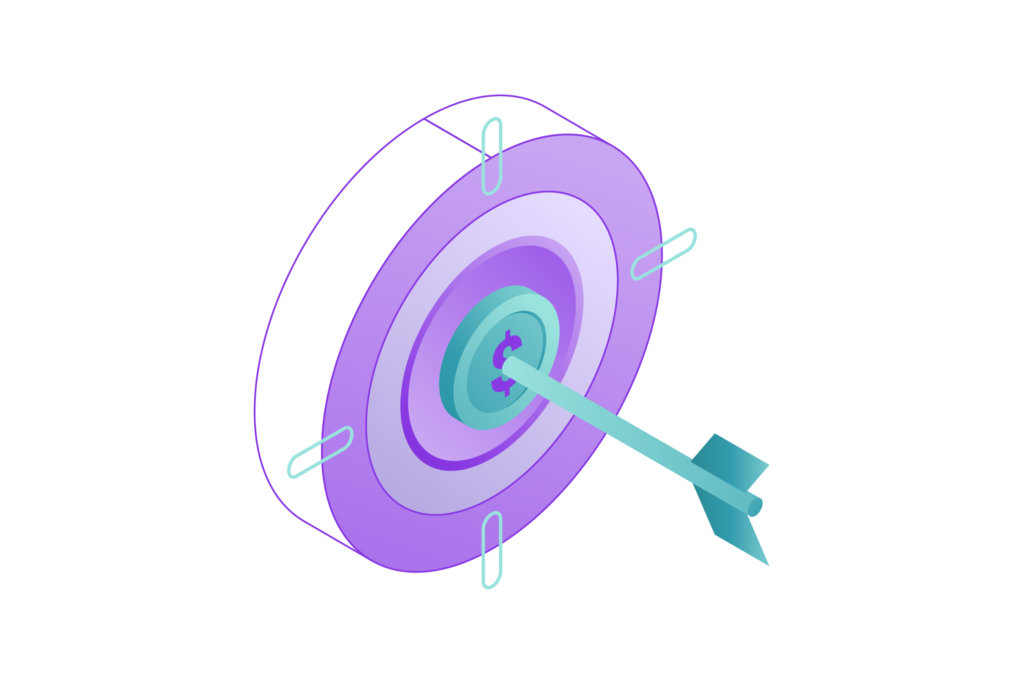
Learning advanced mathematics can be both a challenging and deeply rewarding journey, requiring a combination of discipline, curiosity, and the right strategies. Unlike basic mathematics, which focuses on foundational concepts and straightforward applications, advanced mathematics delves into abstract reasoning, complex problem-solving, and theoretical frameworks that often underpin science, engineering, and technology. To begin this journey, it’s crucial to have a strong understanding of prerequisite topics such as algebra, calculus, and linear algebra, as these form the building blocks for more complex fields like topology, abstract algebra, and real analysis.
Self-study can be an effective approach for motivated learners, utilizing high-quality textbooks, online courses, and open-access resources to dive deeper into specific topics. However, engaging with a community—whether through academic institutions, study groups, or online forums—can provide invaluable support and perspective. Regular practice, particularly solving proofs and challenging problems, is essential to develop the logical rigor and problem-solving skills required in advanced mathematics.
Beyond practice, a mindset of curiosity and persistence is key; advanced mathematics often requires grappling with abstract concepts that may not yield immediate understanding. Learning to embrace the process of trial, error, and gradual comprehension is as important as the content itself. Whether pursued for academic, professional, or personal growth, mastering advanced mathematics opens doors to a world of intellectual achievement and practical application, making the effort worthwhile.
Understand the Basics of Advanced Mathematics

Mastering advanced mathematics doesn’t happen overnight. Before diving into calculus, linear algebra, or differential equations, it’s crucial to solidify your foundation in core subjects like algebra, geometry, and trigonometry. These foundational skills are the building blocks for more complex topics, and without them, tackling advanced concepts can quickly become overwhelming.
Strengthen Your Base to Pave the Way Forward
If foundational math concepts still feel challenging, this is the best place to focus. Start by revisiting essential skills: practice solving equations, understanding functions, and refining your graphing techniques. Algebra lays the groundwork for logical thinking and problem-solving. Geometry and trigonometry, on the other hand, sharpen spatial reasoning—an invaluable skill for interpreting complex formulas and diagrams. Even basic statistics can provide practical insights, setting the stage for advanced mathematical applications.
Invest in Mastering the Basics
If you encounter confusion with fundamental concepts, take the time to review them. Rushing ahead may lead to gaps that make advanced topics feel insurmountable. Many resources, such as online tutorials and interactive exercises, can support you in strengthening these basics. While a thorough review might feel like a slower approach, it’s actually the fastest way to gain the momentum needed for advanced studies. Investing time now in mastering the essentials ensures a smoother and more effective learning experience as you progress.
Setting Clear Goals in Learning Advanced Mathematics

Before diving into advanced math, setting specific goals can significantly simplify the learning process. Without a clear purpose, the wide array of complex topics—ranging from calculus to linear algebra—can feel overwhelming. When you know exactly what you want to achieve, your learning becomes more focused, organized, and purposeful, making progress easier to track and each accomplishment more rewarding.
How to Set Effective Goals for Learning Math
First, define your main reason for learning advanced math. Do you want to apply these skills in fields like data science, engineering, or economics? Or is your goal to improve your problem-solving abilities for broader applications in life? Understanding your purpose helps keep you motivated, especially when challenges arise.
Also Read: 12 Best Essential Resources for Learning Financial Econometrics
Once you’re clear on your purpose, break down your learning into smaller, achievable goals. For instance, if you’re aiming to understand calculus, start with basics like limits and derivatives within a set timeframe. Or, if you’re interested in linear algebra, focus on mastering matrix operations over a few weeks. These manageable goals create a structured path forward, helping you track progress and stay encouraged as you advance.
Building Confidence Through Consistent Progress
Remember, mastering advanced math doesn’t happen overnight. Small, consistent steps toward each mini-goal will build your confidence and bring you closer to your broader objective. This approach not only clarifies the learning process but also creates a strong, steady foundation for tackling more complex math challenges in the future.
Choose the Right Learning Resources

Learning advanced math is a journey, and having the right resources can guide you effectively along the way. Here’s a closer look at various resources, along with some practical tips for making the most of each one. By mixing different types, you’ll have a well-rounded approach to understanding complex math concepts.
Online Courses and Platforms
Online courses provide a structured way to learn and often include exercises, quizzes, and projects that make learning interactive. Here are some popular platforms and what they offer:
| Platform | Focus Areas | Best For | Access Type |
| Khan Academy | Calculus, Linear Algebra | Video-based lessons and exercises | Free |
| Coursera | Calculus, Statistics, Data Science | Guided projects and certification | Free (some paid options) |
| edX | Multivariable Calculus, Probability | University-level courses | Free (certificates paid) |
| Brilliant.org | Logic, Probability, Number Theory | Interactive problems | Paid with trial |
Tips:
- Start with foundational courses if you’re new to advanced topics. Gradually move to more specialized topics as you feel comfortable.
- Set a regular schedule to keep up with course progress, especially for timed courses.
Textbooks and Reference Books
Textbooks might seem old-fashioned, but they’re still incredibly useful for deep learning. Advanced math textbooks cover theory, proofs, and provide varied problem sets to reinforce understanding. Here are some recommended reads based on topic:
- Calculus: Calculus by James Stewart – Covers everything from introductory to advanced calculus.
- Linear Algebra: Linear Algebra and Its Applications by Gilbert Strang – An accessible introduction to linear algebra concepts.
- Probability and Statistics: Introduction to Probability by Dimitri P. Bertsekas – Great for both theory and real-world applications.
Tips for Using Textbooks:
- Don’t rush—take time to understand proofs and derivations, as they deepen your conceptual understanding.
- Use the practice problems in textbooks as checkpoints for your learning; try to solve them without looking at the solutions first.
- Supplement with online explanations or videos if a concept isn’t clear—many textbooks also have companion resources online.
Video Tutorials and Interactive Apps
For visual learners, video tutorials can bring abstract math concepts to life. Apps and interactive sites provide a more hands-on experience, which can help reinforce learning.
- YouTube Channels: Channels like 3Blue1Brown, Professor Leonard, and MathTheBeautiful cover topics like calculus and linear algebra in visually engaging ways.
- Interactive Apps:
- Brilliant.org – Provides hands-on problem-solving in various math fields.
- Photomath – Useful for checking solutions and understanding steps in problems.
- Desmos – An online graphing calculator perfect for visualizing functions, calculus concepts, and more.
Tips:
- Use these resources to visualize concepts that are hard to grasp from reading alone, like graphing functions or seeing vector transformations.
- Try pausing the videos to solve problems on your own before watching the full solution.
Math Communities and Study Groups
Learning advanced math doesn’t have to be a solo endeavor. Math communities, both online and in-person, offer support, accountability, and feedback that can be incredibly helpful.
Popular Online Communities:
- Reddit: Subreddits like r/learnmath, r/math, and r/mathematics can be helpful for finding explanations, tips, and discussions on specific topics.
- Stack Exchange: Math Stack Exchange has a vibrant community where you can ask detailed questions and get answers from experts.
- Discord Study Groups: Many Discord servers have dedicated math channels where members work through problems together and share resources.
Benefits of Joining a Community:
- Shared learning: Hearing others’ approaches can clarify your own understanding.
- Immediate feedback: Get help with questions you’re stuck on, which can save time and frustration.
- Networking: Connect with others interested in math, and even find mentors or study partners.
Tips:
- Don’t hesitate to ask questions—communities are generally welcoming to all levels.
- Be an active participant: Answering questions for others is a great way to reinforce your own learning.
Choosing the right combination of resources will make your learning journey smoother and more enjoyable. Don’t be afraid to experiment and mix different formats until you find the ones that suit you best. The variety available today means there’s something for every type of learner.
Practice to Learn Advanced Mathematics

Practicing consistently is one of the most important parts of learning advanced math. Unlike basic arithmetic, advanced math requires you to understand and apply concepts in varied ways. Regular practice not only builds skill but also helps you develop the problem-solving mindset needed to tackle complex questions.
Start with Simple Problems and Build Up
When practicing, it’s helpful to start with easier problems and gradually increase the difficulty. This allows you to build confidence without getting discouraged. Most textbooks and online courses structure exercises this way, making it easier to progress smoothly.
Why Start Simple?
- Strengthen Basics: Reinforcing fundamental skills makes tackling complex problems easier.
- Avoid Overwhelm: Building up slowly prevents frustration and encourages steady progress.
Tip: Don’t skip over simple problems—solving them quickly gives you a good “warm-up” and helps reinforce the foundational steps.
Use Problem-Solving Techniques
Developing effective problem-solving techniques is key in advanced math. These techniques help you analyze and break down complex problems systematically. Here are a few techniques to consider:
- Understand the Problem: Take time to read the problem carefully. Break it down and identify what you know and what you need to find out.
- Draw It Out: For problems involving geometry, calculus, or vectors, a simple sketch or graph can make concepts clearer and solutions easier to see.
- Work Backwards: Sometimes, starting with the desired result and working backward can give you clues on how to approach the solution.
- Simplify: If a problem looks overwhelming, break it into smaller parts, or simplify by assuming certain conditions (then remove these assumptions as you progress).
These techniques can be applied to any type of problem, from calculus to abstract algebra, helping you think strategically instead of getting stuck.
Mix Up Problem Types for Versatile Practice
When practicing advanced math, it’s useful to vary the types of problems you tackle. Switching between topics like calculus, linear algebra, and statistics keeps your brain flexible and ready to handle different types of thinking.
| Problem Type | Focus Area | Benefits |
| Calculus Problems | Derivatives, Integrals, Limits | Strengthen skills in continuous functions |
| Algebra Problems | Equations, Systems of Equations | Develop logical reasoning |
| Statistics Problems | Probability, Distributions | Improve analytical and real-world thinking |
| Geometry Problems | Shapes, Vectors, Trigonometry | Enhance spatial reasoning |
Tips:
- Don’t avoid challenging problems; they’re where the real learning happens.
- Set aside a time to practice problems from different topics—this improves retention and keeps your skills well-rounded.
Review Mistakes and Learn from Them
Mistakes are a natural part of learning math. Instead of seeing them as setbacks, use mistakes as opportunities to deepen your understanding. Reviewing errors can often reveal gaps in knowledge or common misunderstandings.
How to Learn from Mistakes:
- Identify the error: Figure out exactly where you went wrong—was it a calculation error or a misunderstanding of the concept?
- Understand why: Take time to understand why the mistake happened and what steps were missed.
- Practice similar problems: Reinforce learning by trying similar problems to avoid the same mistake in the future.
Keeping a “mistake log” can be helpful, allowing you to look back and see your progress over time. You might be surprised by how much you learn from your past errors.
Consistency Over Intensity
It’s better to practice math a little bit each day rather than cramming in long sessions occasionally. Consistent practice reinforces learning and makes it easier to retain concepts over the long term.
Suggested Practice Routine:
- Daily Short Sessions: Spend 30 minutes to an hour on math practice daily.
- Weekly Review: Once a week, review any challenging problems or concepts you encountered.
- Set Weekly Goals: Focus on mastering one topic each week, such as derivatives one week and matrix operations the next.
By practicing regularly and using structured techniques, you’ll find that even the most difficult problems become manageable over time.
Join Study Groups or Math Communities

Learning advanced math can sometimes feel like a solitary journey, but it doesn’t have to be. Joining study groups or math communities can add an element of support and collaboration to your experience. Engaging with others can make complex topics feel more approachable and offers a way to get feedback, share resources, and motivate each other through tough topics.
Benefits of Collaborative Learning
Studying with others provides several benefits, especially when tackling challenging topics. Here’s how joining a study group or math community can enhance your learning:
- Shared Understanding: Hearing different perspectives can clarify tough concepts.
- Motivation and Accountability: A group setting keeps you motivated and committed to regular study.
- Immediate Feedback: If you’re stuck on a problem, someone might offer a fresh approach or insight.
- Networking: These communities often include people from various backgrounds, allowing you to learn about new applications of math and even explore career opportunities.
Where to Find Study Groups and Math Communities
Today, there are countless places to connect with others who are also learning advanced math. Whether you prefer online spaces or local meet-ups, you’ll find options that fit your style.
| Platform | Description | Best For |
| Subreddits like r/learnmath and r/mathematics offer Q&A, discussions, and resources. | Asynchronous discussions and Q&A | |
| Math Stack Exchange | A Q&A site dedicated to all levels of math topics. | Detailed questions and deep discussions |
| Discord Servers | Many study servers have dedicated math channels for collaboration. | Real-time group studies and discussions |
| Local Meetups | Sites like Meetup.com list local math groups and workshops. | In-person study sessions and networking |
Tips for Participating in Math Communities:
- Ask Specific Questions: Clear questions are more likely to get helpful responses. Explain what you’ve tried and where you’re stuck.
- Engage with Others’ Questions: Answering questions can reinforce your knowledge and help you learn from others’ challenges.
- Respect Different Levels: Communities often include beginners to experts. Be open to learning from all types of questions and answers.
Study Group Strategies
If you decide to form or join a study group, structuring your sessions can make them more productive. Here are some strategies to get the most out of group study:
- Rotate Leadership: Each session, have someone take the lead on a specific topic. This gives everyone a chance to teach and reinforces learning.
- Break Down Topics: Divide topics into manageable sections to avoid information overload.
- Discuss Problem-Solving Approaches: Hearing how others approach problems can introduce new strategies and help you think more flexibly.
- Celebrate Small Wins: Recognize each other’s progress, no matter how small. Acknowledging achievements can keep everyone motivated.
Study groups work best when everyone is engaged and supportive. The goal is to create a space where questions are welcomed, and everyone feels comfortable sharing their thoughts.
Also Read: Quantitative Subjects: Advanced Concepts and Applications
Exploring Online Math Challenges Together
If you’re looking for a fun way to challenge your skills and collaborate, try tackling online math challenges as a group. Websites like Project Euler, Art of Problem Solving, or Brilliant.org offer math problems that require creative solutions. Working on these with others can make it feel less like “studying” and more like a shared adventure.
Benefits of Group Challenges:
- Sharpen Problem-Solving Skills: These problems often require out-of-the-box thinking.
- Learn New Approaches: See how others break down complex challenges and learn from their techniques.
- Make Learning Enjoyable: The friendly competition and teamwork can make studying math feel like a game.
Collaborative learning can add a dynamic and enjoyable element to your math journey. Plus, the support from others can make even the most complex topics feel more manageable.
Conclusion
Learning advanced mathematics may seem challenging, but with the right approach and mindset, it’s entirely possible to make it an enjoyable journey. Remember, advanced math is more than just equations and formulas; it’s a way of thinking and problem-solving that opens up new perspectives. By taking the time to build a solid foundation, setting clear goals, and choosing resources that suit your learning style, you’re setting yourself up for long-term success.
The process won’t always be easy, but that’s where consistent practice and community support come in. Practicing regularly and using problem-solving techniques not only reinforces what you learn but also builds confidence over time. Joining a study group or engaging in online math communities can make the journey feel less lonely and more enjoyable. You’ll gain new insights, learn from others, and develop a network of people who are on the same journey.
Above all, remember that learning advanced math is a gradual process. Every small step you take brings you closer to mastery. Enjoy the learning process, celebrate your progress, and embrace the challenges along the way. In the end, the skills and insights you gain from advanced math will not only boost your problem-solving abilities but also give you a new perspective on the world around you.
Disclaimer: The information provided by Quant Matter in this article is intended for general informational purposes and does not reflect the company’s opinion. It is not intended as investment advice or a recommendation. Readers are strongly advised to conduct their own thorough research and consult with a qualified financial advisor before making any financial decisions.

Joshua Soriano
As an author, I bring clarity to the complex intersections of technology and finance. My focus is on unraveling the complexities of using data science and machine learning in the cryptocurrency market, aiming to make the principles of quantitative trading understandable for everyone. Through my writing, I invite readers to explore how cutting-edge technology can be applied to make informed decisions in the fast-paced world of crypto trading, simplifying advanced concepts into engaging and accessible narratives.
- Joshua Soriano#molongui-disabled-link
- Joshua Soriano#molongui-disabled-link
- Joshua Soriano#molongui-disabled-link
- Joshua Soriano#molongui-disabled-link
